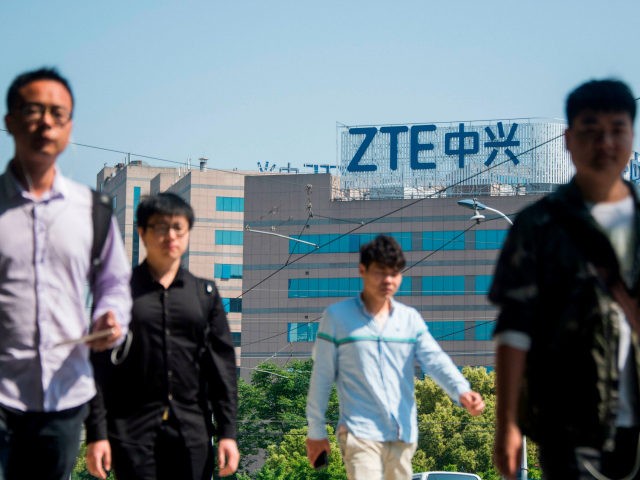Details emerged Friday of a tentative deal the Trump administration has reached concerning Chinese telecommunications firm ZTE.
Under the deal that has been negotiated, ZTE would pay a $1.3 billion fine, replace the current management and executive board, offer security guarantees, and purchase much of the parts it needs from U.S. companies:
Chinese President Xi Jinping reportedly called President Donald Trump asking for relief for the Chinese telecom firm and putting an initial offer on the table, according to Fox News. Trump rejected the initial offer and provided a tough counteroffer. After negotiating the terms, the parties have come to the tentative deal that is being reported Friday.
The U.S. Commerce Department informed lawmakers on Friday of the tentative deal with ZTE, according to Reuters.
Sen. Marco Rubio responded to the news with threats of congressional action:
Rubio’s threat comes the day after the House voted to ban the U.S. government from doing business with ZTE or any vendors who do business with ZTE. The Hill reported that the provision was added to the 2019 National Defense Authorization Act (NDAA), which passed the House with overwhelming support, 351-66. The Senate Banking Committee has also acted against ZTE, voting 23-2 for an amendment to block President Trump from easing sanctions on ZTE.
Rubio’s message echoes that of New York Democrat Sen. Chuck Schumer, who said after the Senate Banking Committee vote, “If the president and his team won’t follow through on tough sanctions against ZTE, it’s up to Congress to ensure that it happens.”
Trump administration officials have been pressing hard into working on a bilateral trade deal with China in recent weeks. Talks have commenced both in Beijing and Washington, DC. The focus of those talks has been rebalancing the massive U.S. deficit with China and the Chinese stealing of the intellectual property of U.S. companies. The U.S. has relented on some threats of increased tariffs on China as a result of those talks, and China has said it will reduce some of its tariffs on U.S. auto exports to China by nearly half. However, Trump said this week he is not happy with the state of the trade talks between the two nations, calling them merely “a start.”
Follow Michelle Moons on Twitter @MichelleDiana.

COMMENTS
Please let us know if you're having issues with commenting.